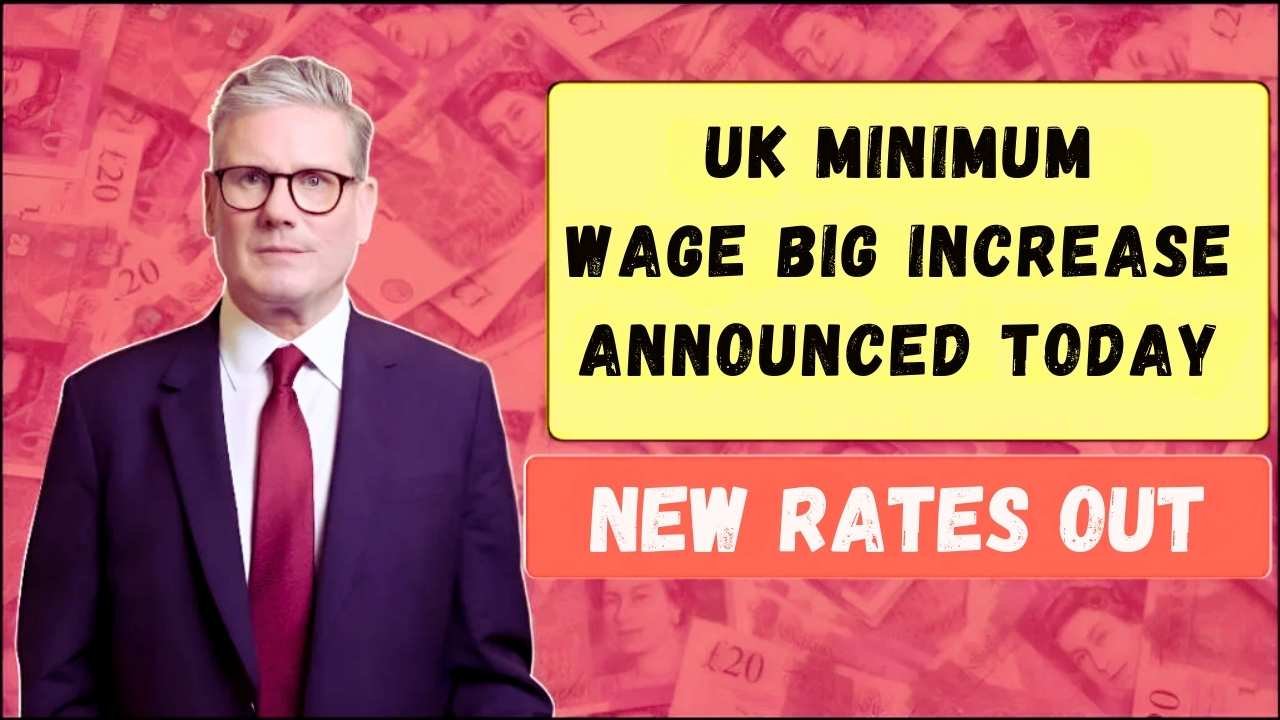A Welcome Pay Rise for Millions
The UK government has announced a significant increase in the National Minimum Wage, bringing good news for millions of workers across the country. Starting April 2026, the minimum wage will rise for all age groups, with the goal of ensuring fair pay for low-income workers. This move comes as living costs continue to challenge households, and the government hopes the increase will ease financial pressures. The new rates are expected to benefit around 2.5 million workers, particularly those in sectors like retail, hospitality, and care.
New Rates Explained
The minimum wage will see a notable jump, with the National Living Wage for workers aged 21 and over increasing by 6.7% to £12.21 per hour. For younger workers, the changes are equally significant. Those aged 18 to 20 will see their minimum wage rise to £9.97 per hour, while 16- and 17-year-olds will earn £7.85 per hour. Apprentices will also benefit, with their hourly rate climbing to £7.85. These changes aim to reflect the rising cost of essentials like food, energy, and housing.
| Age Group | New Minimum Wage (April 2026) |
|---|---|
| 21 and over | £12.21 per hour |
| 18 to 20 | £9.97 per hour |
| 16 to 17 | £7.85 per hour |
| Apprentices | £7.85 per hour |
Why the Increase Matters
For many workers, this pay rise will make a real difference. An extra few pounds per hour can help cover bills, groceries, or even small treats that might have felt out of reach. For example, a full-time worker aged 21 or over earning the National Living Wage will see their annual income rise by around £1,400. This boost could help families keep up with inflation, which has been a concern for many. However, some argue the increase doesn’t go far enough, as living costs in cities like London remain very high.
Impact on Businesses and Workers
While workers celebrate the extra cash, businesses, especially small ones, may face challenges. Higher wages mean increased costs for employers, particularly in industries with tight profit margins. Some businesses might need to raise prices or cut hours to balance their books. On the other hand, better pay can improve staff morale and reduce turnover, which could save money in the long run. Workers, meanwhile, will have more spending power, which could boost local economies as people spend more in shops and restaurants.
What’s Next for Workers?
The government has promised to keep reviewing wages to ensure they match living costs. There’s also talk of simplifying the minimum wage system, possibly removing age-based differences in the future. For now, workers can look forward to the new rates kicking in next spring. It’s a step toward fairer pay, but many will be watching to see if future increases keep pace with rising prices. If you’re earning minimum wage, check your payslip in April to ensure you’re getting the new rate.
